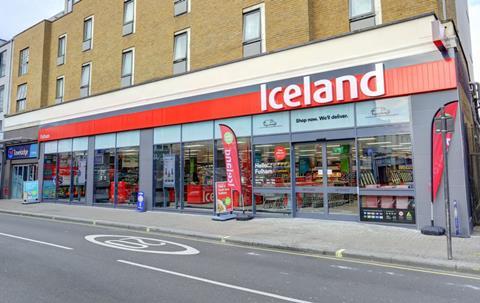Media Bites 29 July: Iceland, Ocado/M&S, Boots | News

Iceland made a record profit last year after the frozen-food chain’s energy bills fell and customers tucked into its £1 value range. (The Times £)
The boss of Ocado intends to retain the group’s stake in its online joint venture with Marks and Spencer after the deal’s five-year anniversary, which would allow either side to sell their shares to the other. (The Financial Times £)
What’s next for Boots, asks The Times. After a failed attempt at a sale, its US owner has begun sprucing up the retailer’s stores, investing in beauty halls, and offering more GP services. “One reason why Boots won’t be getting new owners any time soon is that it has gone from being a problem child to a star performer for Walgreens”. (The Times £)
Reckitt and Unilever join the consumer giants slimming down – a focus on ‘power brands’ is the new mantra for conglomerates once known for their heft. Conglomerates such as Unilever have often been unfavourably compared by investors to more focused businesses including L’Oréal and Danone. (The Financial Times £)
UK motorists are still being overcharged for fuel, according to the competition watchdog, which said they paid £1.6bn more than they should have last year alone (The Guardian). Petrol stations ‘rip off’ drivers by £1.6bn with supermarkets worst offenders (The Telegraph £). The CMA says its report shows the continuing need for a compulsory fuel price monitoring system to help motorists make informed choices on where they can get the best pump costs (Sky News). The CMA found that supermarkets’ profit margins – which is the difference between the price they buy fuel at and what they charge motorists – had doubled since 2019 (The BBC).
The recent spell of warm weather after a rainy and cloudy start to the summer has provided perfect growing conditions in Britain for as much as 200 tonnes of surprise “big, juicy, luscious” strawberries heading to shop shelves, a leading supplier has said. (The Guardian)
The EU had a record number of potential olive oil fraud and mislabelling cases in the first quarter of this year as inflationary pressures fuelled an increase in the hidden market for the kitchen staple. (The Guardian)
French winemakers eye swoop on British sparkling vines. After years of hard graft to build up a homegrown industry to rival Champagne, The Daily Mail suggests French luxury houses might be looking to swoop for Chapel Down and fellow Kent rival Gusbourne. (The Daily Mail)
The number of food halls has more than doubled in Britain in recent years as sitting on benches while eating noodles and sipping craft beer has grown increasingly popular. (The Times £)
Everyone wants a piece, but rapid delivery is still a small pie. Start-ups have struggled as bigger players have gone after their market, even though it is unlikely to seriously challenge their traditional businesses. (The Times £)
Supermarkets are under fresh scrutiny over claims they are advertising fake discount prices, as the UK watchdog seeks to clamp down on attempts to mislead shoppers. (The Telegraph £)
Howard Schultz, the former Starbucks chief executive, is opposing a potential settlement between the company and activist investor Elliott Investment Management, in the latest sign of tension at the world’s largest coffee chain. (The Financial Times £)
Warehouse rents are still going up but are doing so nowhere near as quickly as they once were, according to Europe’s biggest owner of logistics hubs and delivery depots. (The Times £)
Halfpenny Green Wine Estate is riding the wave of interest in domestic wine production. Since the 2023 harvest, where it processed 700 tonnes of grapes, he has spent £200,000 on new buildings and £450,000 on kit. (The Times £)















































